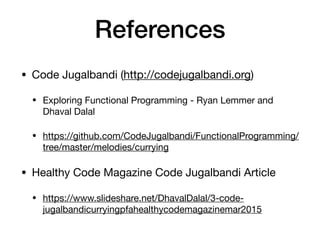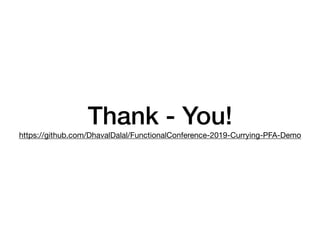The document discusses the concepts of currying and partial function application (PFA) in programming, explaining how functions can be transformed to accept one argument at a time, facilitating cleaner code and improved function reuse. It provides various examples of implementing currying and PFA across several programming languages, highlighting their differences and practical applications. Additionally, it emphasizes that while currying requires strict left-to-right argument application, PFA allows for more flexibility and ad-hoc argument handling.
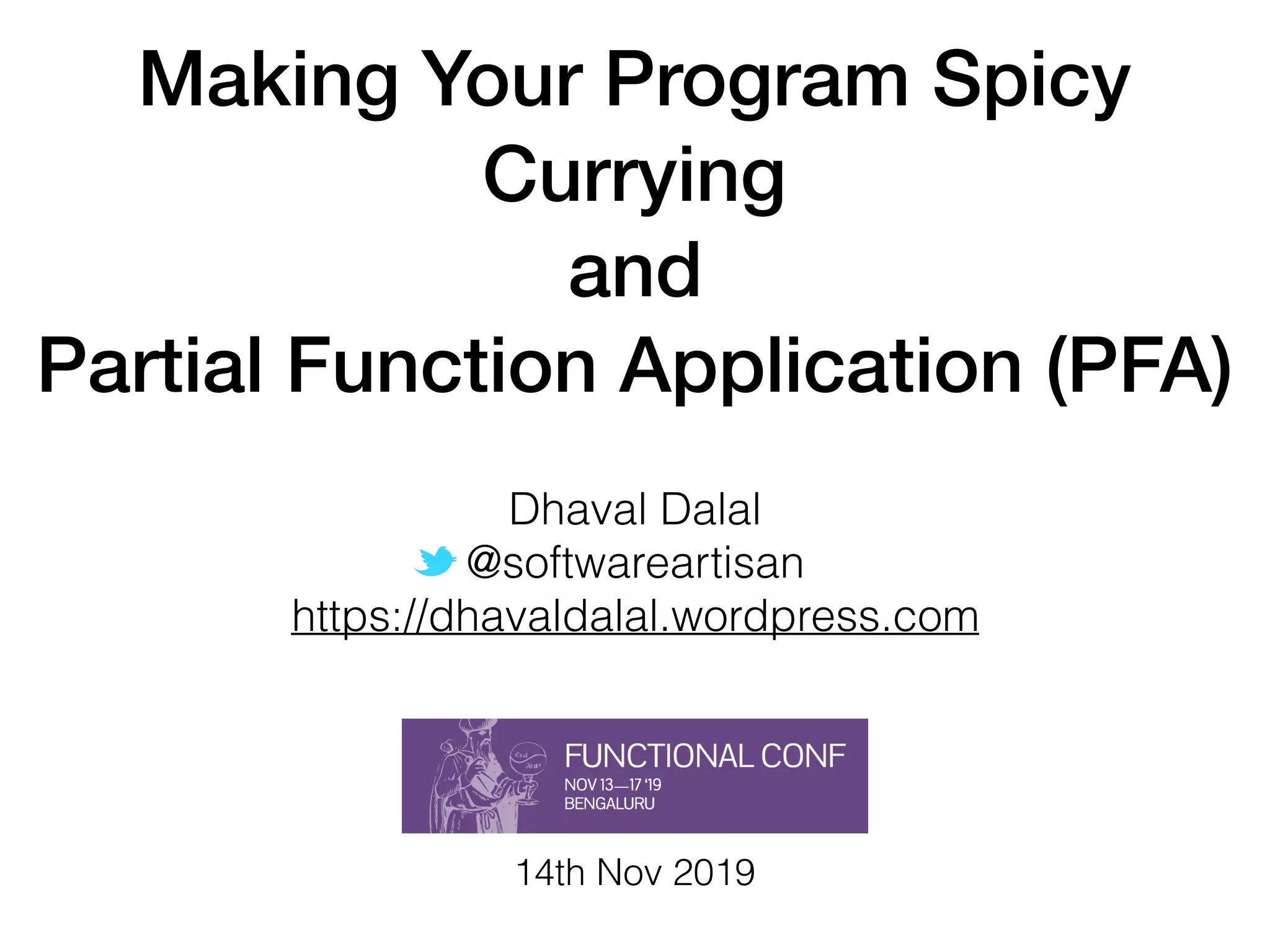





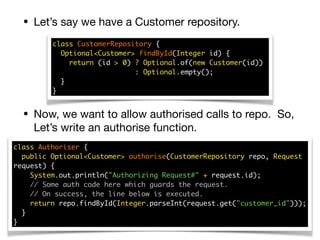

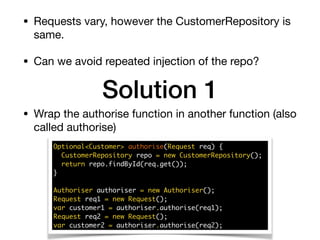
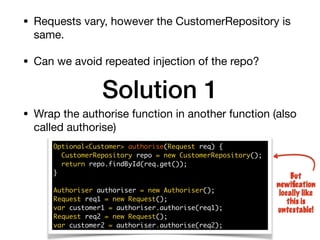







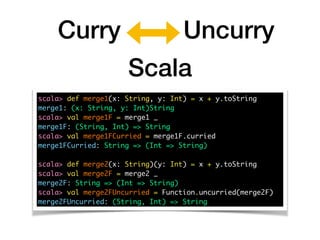
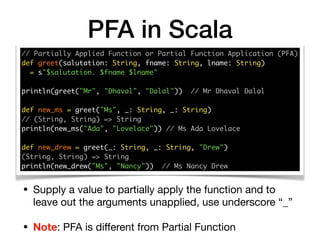


![Currying in Haskell
Prelude> :type (*)
(*) :: Num a => a -> a -> a
Prelude> multiply2 = (*2)
Prelude> :type multiply2
multiplyBy2 :: Num a => a -> a
Prelude> multiply2 3
6
• Even operators are
curried by default.
Prelude> :type filter
filter :: (a -> Bool) -> [a] -> [a]
Prelude> even = x -> x `mod` 2 == 0
Prelude> filterEvens = filter even
Prelude> :type filterEvens
filterEvens :: Integral a => [a] -> [a]
Prelude> filterEvens [0..10]
[2,4,6,8,10]
Prelude> filterOdds = filter (not . even)
Prelude> filterOdds [0..10]
[1,3,5,7,9]
• Yet another
example…](https://image.slidesharecdn.com/currying-pfa-191117043240/85/Currying-and-Partial-Function-Application-PFA-22-320.jpg)
![PFA in Clojure
(defn new-person [salutation f-name l-name]
(println salutation f-name l-name))
(new-person "Mr." "Dhaval" "Dalal") ; Mr Dhaval Dalal
(def new-ms (partial new-person "Ms"))
(new-ms "Ada" "Lovelace") ; Ms Ada Lovelace
• Lets partially apply title to this function…
• Lets now partially apply title and first-name
(def new-ms-ada (partial new-person "Ms" "Ada"))
(new-ms-ada "Lovelace") ; Ms Ada Lovelace](https://image.slidesharecdn.com/currying-pfa-191117043240/85/Currying-and-Partial-Function-Application-PFA-23-320.jpg)

![Lambda to the rescue
• We wrap this in a lambda!
(def new-dalal (fn [sal fname]
(new-person sal fname "Dalal")))
(new-dalal "Mr." "Dhaval") ; Mr. Dhaval Dalal
• Doing this by hand every time is tedious!
• Fortunately, Clojure has a macro to synthesise this
kind of "ad-hoc" partial function application
(def new-dalal #(new-person %1 %2 "Dalal")) ; Mr. Dhaval Dalal
(new-dalal "Mr." "Dhaval") ; Mr. Dhaval Dalal
(def new-ada #(new-person %1 "Ada" %2))
(new-ada "Ms." "Lovelace") ; Ms Ada Lovelace
(new-ada "Mrs." "???") ; Mrs. Ada ???](https://image.slidesharecdn.com/currying-pfa-191117043240/85/Currying-and-Partial-Function-Application-PFA-25-320.jpg)
![Currying in Groovy
def filterList = { filter, list -> list.findAll(filter) }
def even = { it % 2 == 0 }
def evens = filterList.curry(even)
println evens(0..10) // [0, 2, 4, 6, 8, 10]
def not = { !it }
def odds = filterList.curry(even >> not) // even andThen not
println odds(0..10) // [1, 3, 5, 7, 9]
• In Groovy, we need to explicitly call the curry
method on closure!
• It curries from left to right
def merge = { x, y, z ->
println "arg0: x = $x"
println "arg1: y = $y"
println "arg2: z = $z"
"$x$y$z"
}
println merge.curry(10)('Hello', new Date()) // 10Hello<Date>
println merge.curry(10, 'Hello')(new Date()) // 10Hello<Date>](https://image.slidesharecdn.com/currying-pfa-191117043240/85/Currying-and-Partial-Function-Application-PFA-26-320.jpg)


